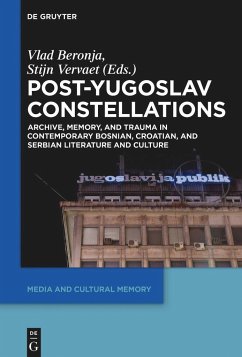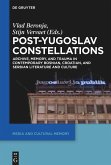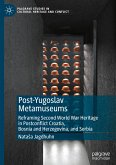Memory in the Balkans has often been described as binding, authoritative, and non-negotiable, functioning as a banner of war. This book challenges such a one-dimensional representation and offers a more nuanced analysis that accommodates frequently ignored instances of transnational solidarity, dialogue, communal mourning and working through a difficult past. Exploring a broad range of memorial practices, the book focuses on the ways in which cultural memory is mediated, performed and critically reworked by literature and the arts in the former Yugoslavia. Against the methodological nationalism of works that study Serbian, Croatian, or Bosniak culture as self-contained, this book examines post-Yugoslav literature, film, visual culture, and politicized art practices from a supranational angle. Not solely focusing on traumatic memories, but also exploring how post-Yugoslav cultural practices mobilize memory for a politics of hope, this volume moves beyond the trauma paradigm that still dominates memory studies. In its scope and approach, the book shows the relevance of the cultural memory of Eastern European citizens and the contribution they can offer to the building of Europe's shared cultural memory and transnational identity.
Bitte wählen Sie Ihr Anliegen aus.
Rechnungen
Retourenschein anfordern
Bestellstatus
Storno








